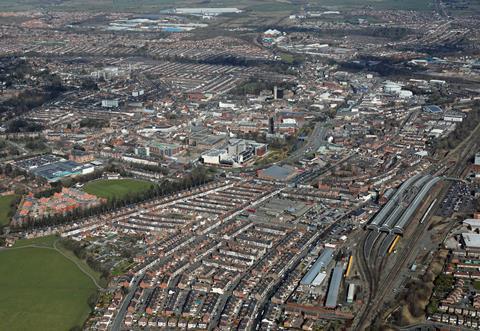By ‘eck, the BBC is to drag swathes of its London staff up North and the regions in the name of the government’s ‘levelling up’ agenda. It’s bound to price some locals out of the market. And not just for their macchiatos.

The new director general Tim Davie announced last month that entire departments and news crews involving a yet undisclosed chunk of the broadcaster’s 22,000 employees are to move to Leeds and its existing Salford hub as well as Birmingham, Cardiff and Glasgow, with an extra £700m to be spent outside the capital by 2028.
“We must play our part in supporting social and economic recovery from all corners of the UK,” according to Davie, possibly the most politically-alert of recent DGs.
He’s certainly on message. Ministers have been falling over themselves to relocate their ranks to the regions (ideally in ‘red-wall’ seats, cynics might suggest).
Housing secretary Robert Jenrick was first to move, announcing in February that his department would build a second headquarters in Wolverhampton with at least 500 staff by 2025. In March, chancellor Rishi Sunak used his Budget to announce that a “significant part” of the Treasury would relocate to Darlington, some 750 senior civil servants. He was making good the commitment he made in the previous year’s Budget, for the whole government to relocate 22,000 civil servants by the end of the decade.

If followed through – at a cost of up to £44,000 to move each official, according to the Institute for Government – it could provide a major stimulus to local economies, not least their property markets. New offices and studios will have to be built or extended. Like the car plants that used to pepper the regions, they should attract and sustain new supply chains, in this case a retinue of PRs, lobbyists and creative types – not to mention baristas.
A wave of potentially higher-earning incomers will have to be housed, while more money in the regional economies should invigorate existing markets. As well as supporting the private housing market, it’s likely to be an additional fillip for the more flexible build-to-rent sector across the regions.
New arrivals might want to dip their toes in the water, as it were, before committing to a purchase; relatively itinerant civil servants won’t have to contend with moving from one department to another across Whitehall but the whole country – not necessarily the conditions for putting down permanent roots.
Levelling up
The moves come at a time when housing market statistics are already showing signs of levelling up. The discount between London and, for instance, the North of England, has narrowed from 74% in 2017 to 71%, according to Nationwide’s house price index.
In the latest RICS survey, the North West of England showed the greatest rise in prices, with 78% more agents reporting increases than those seeing falls, with similarly strong balances of 75% and 55% respectively in Wales and Scotland, compared to only 25% in the capital.
The North of England saw the highest expectation for rent, with a +40% balance, while London was the only region in the country where 43% more letting agents expected falls than rises.
Those gaps could shrink more if other corporates opt to follow the lead of government and broadcasters. Dare one suggest, it should add an extra shot of froth to demand for flat developments as much as flat whites.
Talking about the Beeb and politics, Berkeley Group has made the surprising but no doubt astute move of appointing former BBC Radio 4 Today editor Sarah Sands as a non-executive director. Today listeners will attest to its ‘liberal’ tendencies – potentially very useful in today’s environmental, social and governance (ESG) environment, which is obsessing boards.
Sands is also hugely connected in the world of politics and media – both of which regularly love to give housebuilders a kicking. Better to have a representative of the media inside the tent peering out than outside peering in. As it were.
Alastair Stewart is an equities analyst and consultant
































No comments yet